Research
Selected Publications (Old)
Artificial Invariant Subspace for Humanoid Robot Balancing in Locomotion
Legged robots that make use of compliant actuators have demonstrated greater robustness of locomotion than their rigid counterparts. Stiffness and damping are key parameters that characterize the adaptation to perturbations. In this work, by drawing inspirations from controllable compliance and damping in existing soft and bio-inspired legged robots, we propose an approach to design a nonlinear controller for the balancing of humanoid robots with rigid bodies. Existing literature has proposed simplified dynamical models of biped robots in order to predict the timing and placement of swing foot for walking without falling. We further employ the properties of invariance to perturbations in damped harmonic oscillators and formulate continuous feedback control in combination with predictive foot stepping in order to achieve continuous adaptive recoveries of the nominal walking cycle from unexpected physical disturbances. Our method allows asymptotic convergence of the rigid body dynamics to a subspace with the desired energy level. We demonstrate the robustness of the proposed algorithm base on extensive push recovery experiments on a NAO robot on flat terrains.
Artificial Invariant Subspace with Potential Functions for Humanoid Robot Balancing
Existing trajectory planning based locomotion algorithms lack the analytic tools to fully comprehend energy based movements that would allow for full stability and mobility. Such drawbacks make humanoid robots' locomotion sensitive to external disturbances and compromise robots' agility in unstructured environment. In this work, we specifically focus on the push recovery problem for humanoid robots. We propose an approach to design a nonlinear controller that is robust to external disturbances. It allows the state of the rigid body dynamics to asymptotically converge to the subspace that meet the criteria of balancing, based on the properties of artificial invariant subspace and potential functions. Our algorithm is completely adaptive in real time without requiring trajectory planning in advance. We demonstrate the robustness of the proposed algorithm base on extensive push recovery experiments on the DARWIN-OP robot platform on flat terrains.
Leveraging compliance in origami robot legs for robust and natural locomotion
We present an origami-inspired compliant robot leg design with three degree of freedom compliance. Using the proposed leg, we created a full quadrupedal robot that can walk robustly with adaption to non-flat terrains and external perturbations. We can reconfigure the design to change the stiffness. According to systematic locomotion tests, we demonstrate unique advantages of the proposed leg design over a rigid counterpart of the same dimension and weight in terms of enhancing locomotion stability.
The UPennalizers RoboCup Standard Platform LeagueTeam Description Paper 2018
The UPennalizers is a robocup standard platform team fromthe University of Pennsylvania. This paper presents the most recent re-search projects and accomplishments by the team UPennalizers in prepa-ration for the RoboCup 2018 in Montreal, Canada.
The UPennalizers RoboCup Standard Platform LeagueTeam Description Paper 2017
This paper presents the current research and software systemfor humanoid soccer robots developed by the UPennalizers - the robotsoccer team from University of Pennsylvania. The team has been involvedin RoboCup for over a decade to foster the research in the areas of roboticvision, machine learning, motion control and artificial intelligence. Thecurrent software system integrates perception, locomotion and behaviormodules together to enable a team of robots to play soccer autonomously.This work mainly describes the improvements made across all modulesfor the preparation of the RoboCup 2017 Standard Platform League(SPL) competition in Nagoya, Japan.
Selected Videos
Artificial Invariant Subspace for Humanoid Robot Balancing in Locomotion, IROS 2018
Artificial Invariant Subspace with Potential Functions for Humanoid Robot Balancing, IROS 2017
Robocup 2017 Challenge Shield Third Place UPenn vs. JoiTech
US Open 2018
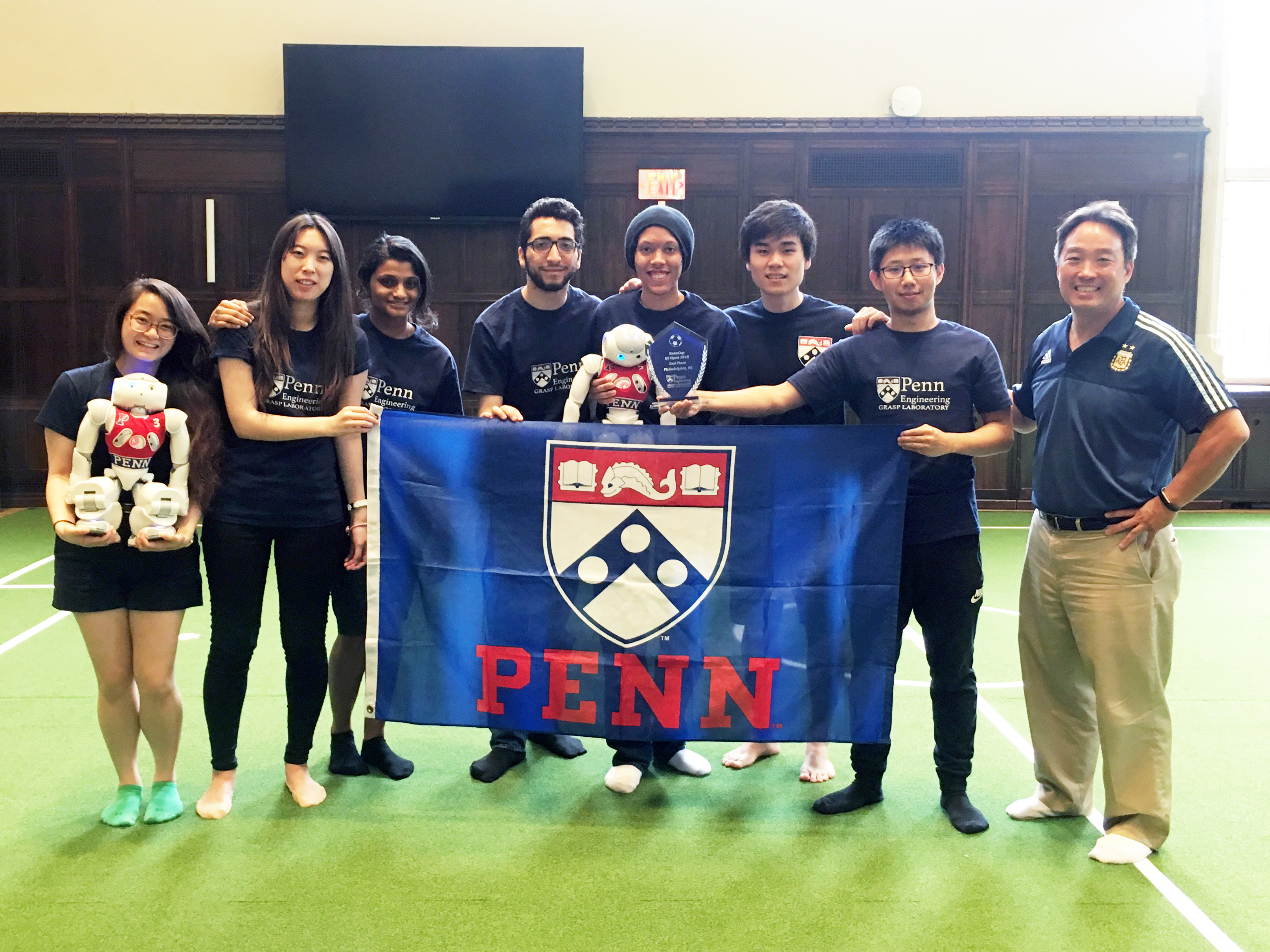
US Open 2017
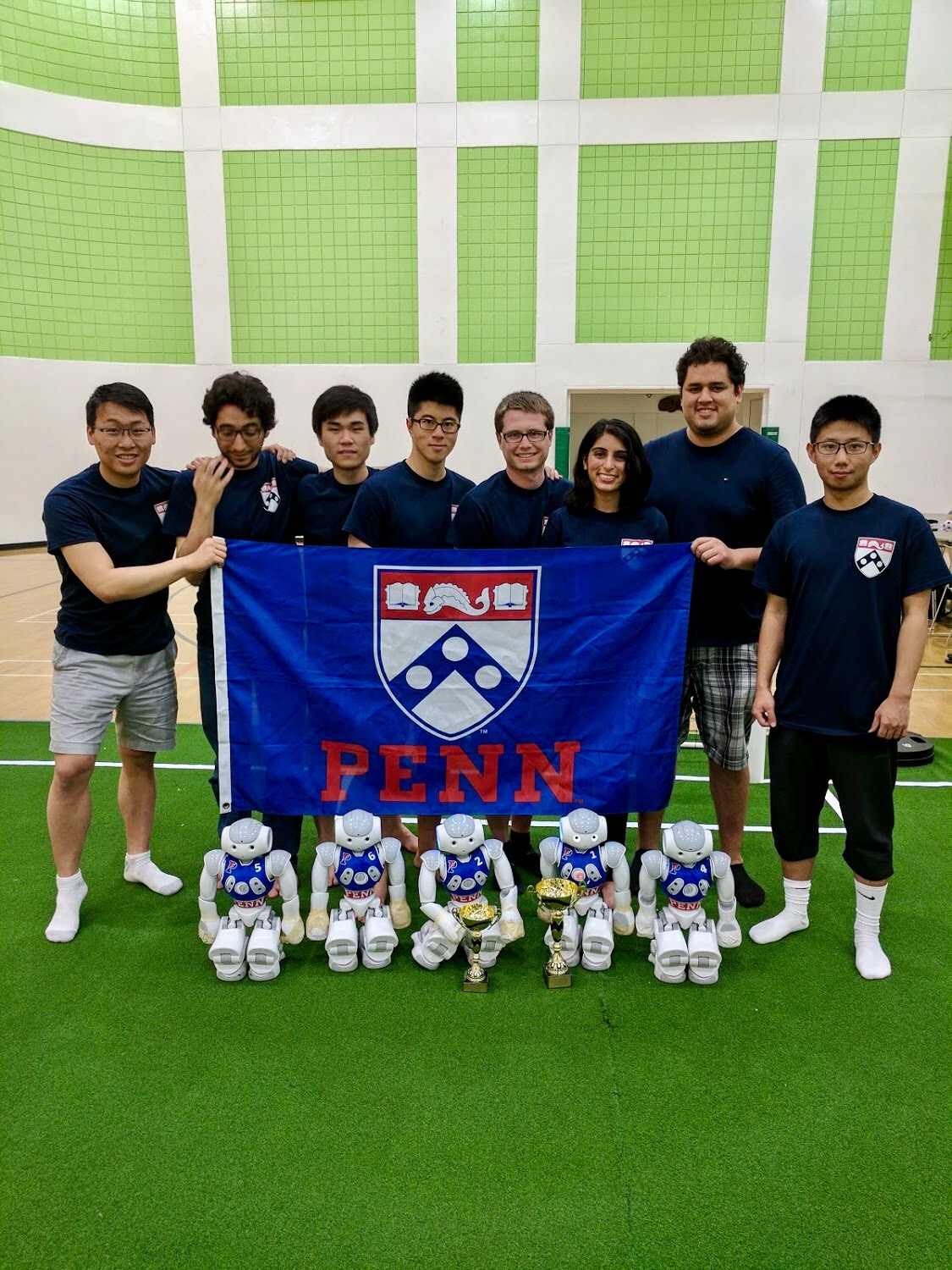
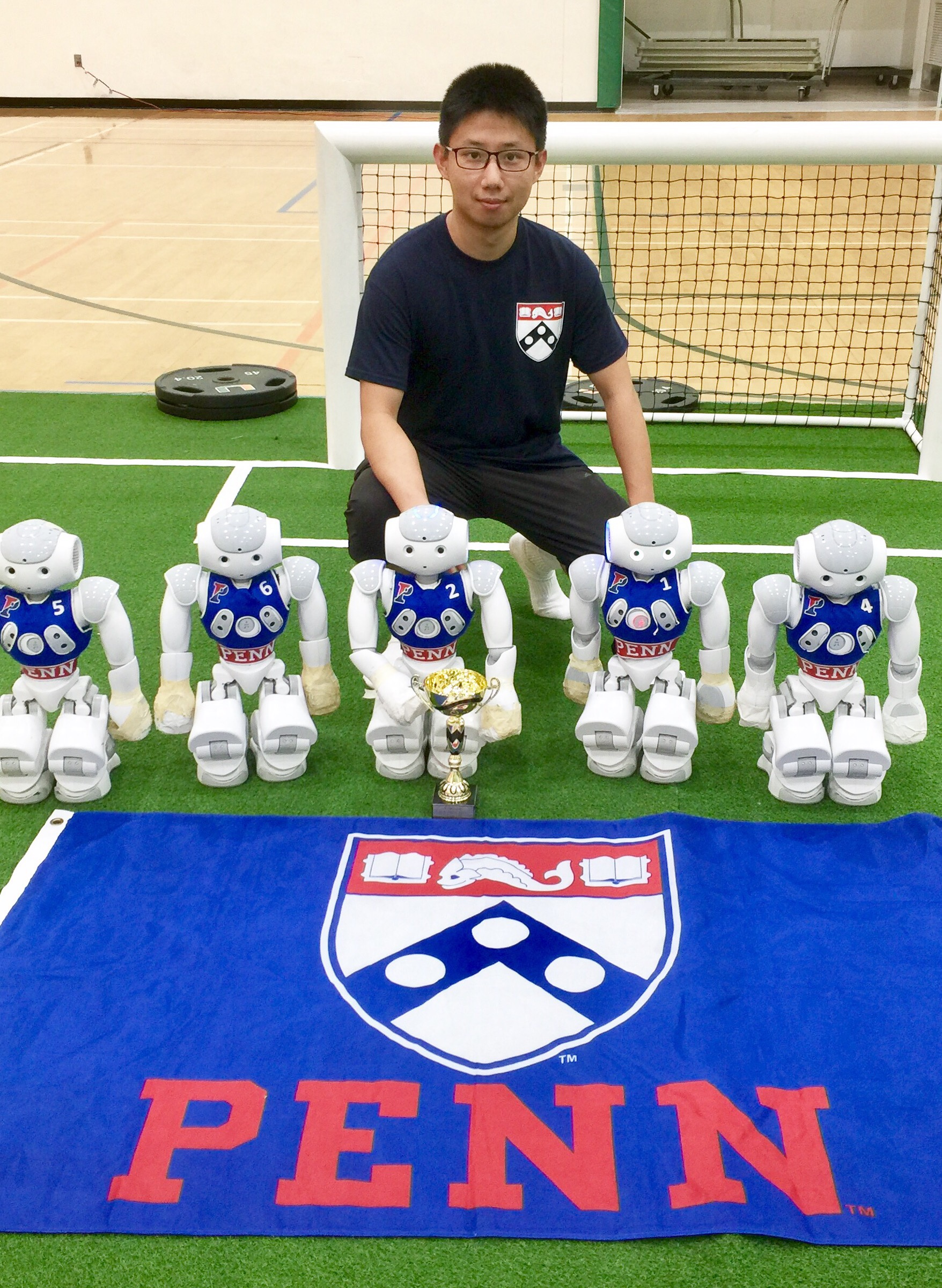
Robocup 2016 Adultsize Humanoid Robot Rescue Demo
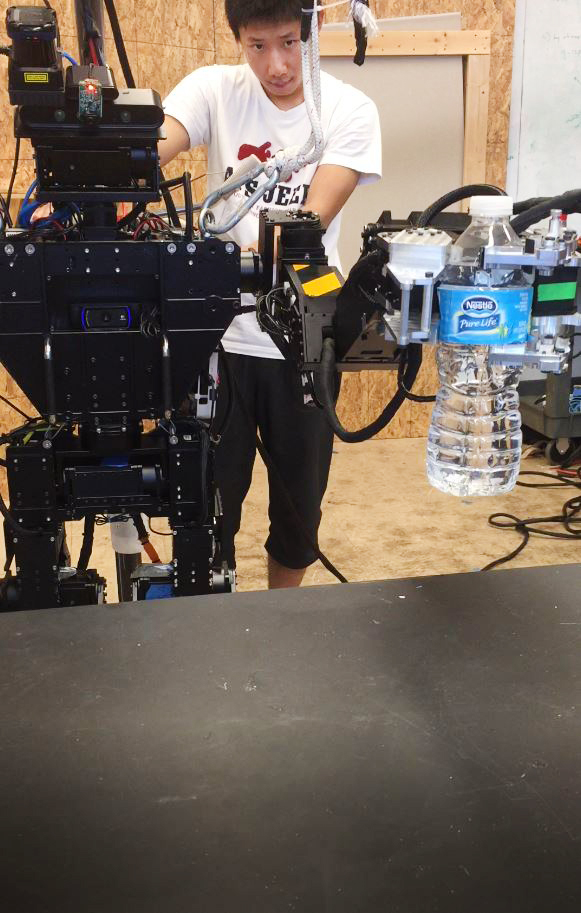
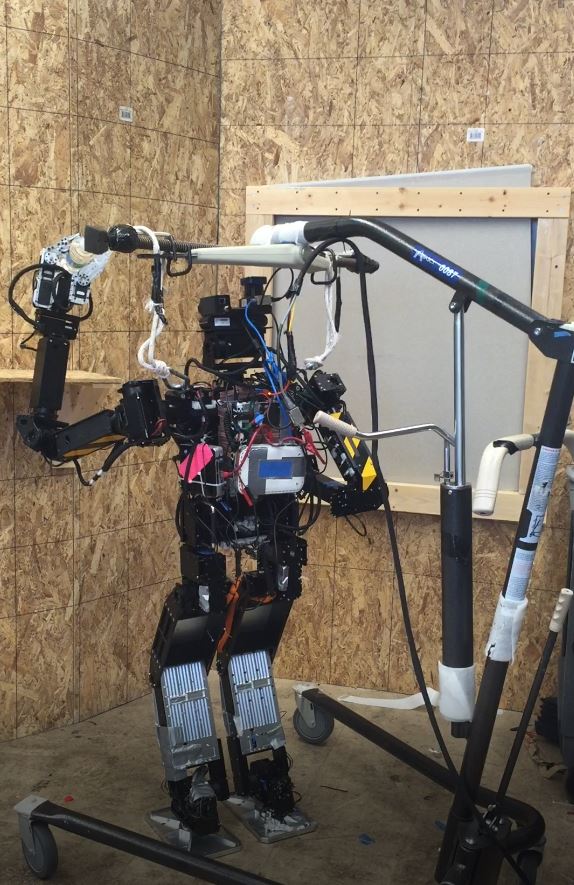
I started my study of humanoid robot in 2016 through working on RoboCup rescue demo using the THOR robot; I worked with Dr. Jinwook Huh and Dr. Stephen McGill.